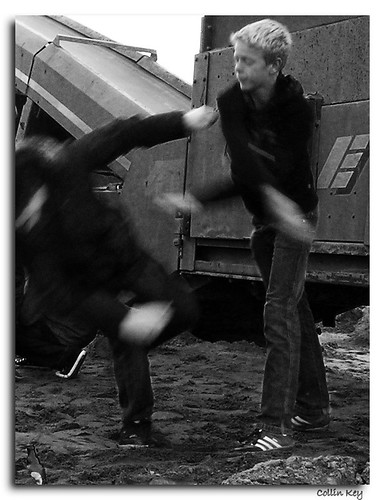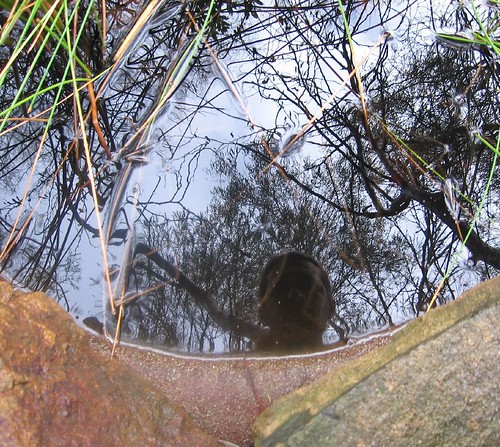I’ve fought close to a dozen fights.
I’ve fought my brother, two best friends, five or so drunks in college, and a few New Years Eves ago, a group of six with one Australian and two Samoans at my side. It was the broad-shouldered Australian who began things by tapping my shoulder and informing me, “I’m going to go hit that chap. And you’ll hit his friend. And we’ll see what happens from there,” and it was the Samoan bouncers who came to our rescue shortly thereafter, doing all the actual fighting. I’d known the Aussie for all of two hours.
So for me, it’s all been play-fighting. Nothing serious. Which is how Benjamin Percy’s “Refresh, Refresh” starts: two boys circle each other in a backyard trying to toughen one another up. It’s play.
From the start, Percy’s prose pops like each boy’s punches. What begins in the title—“Refresh, Refresh,” two jabs that become uppercuts when their meaning is revealed—continues in the first paragraph of the story with a simple bit of repetition that establishes rhythm:
So in the grass, in the shade of the pines and junipers…
and only escalates, soon a full-on barrage in the second paragraph:
If you stepped out of the ring, you lost. If you cried, you lost. If you got knocked out or if you yelled “Stop!” you lost.
This rhythm carries you to the first turn in the story, the last line of the first section:
This was what we all wanted, to please our fathers, to make them proud, even though they had left us.
Boom: haymaker. The line’s a reminder that like fights, stories turn too. Against my brother, my two best friends—eventually a playful shove escalates, and that thing we humans suppress behind leather belts, fine watches, furry wool scarves: it unravels. An animalistic edge snarls.
My favorite element of “Refresh, Refresh” is its blueprint and rhythm, the steady incline it so carefully climbs to approach that animalistic side. Like a good fight, the story is planned meticulously, a string of punches and counterpunches that begins with the repetition in those first few paragraphs and never relents.
The playfulness of two boys trying to become men in the wake of their fathers’ deployment to Iraq takes them on a path they don’t know they’re on. But we sense it. In the last line of every section, the transformation trembles. In the repetition that follows. In the steady introduction of information, and then in the characters for whom its ramifications crystallize. Before the reader realizes it, the boys’ fighting has turned into something else.
Play—painting their faces “black and green and brown” with the camo their father left behind—becomes snarl in the blood they piss afterward, the force with which they strike each other, punching until “knuckles showed through the sweat-soaked blood-soaked foam like teeth through a busted lip.”
Play: channeling their fathers as they run around a forest pretending to be soldiers. Snarl: escalating a session of “pretend” into all-out theft and property damage. Play: the speed and rush of sledding. Snarl: redefining their hill, a place of play, as home base for revenge, vindication, worse.
“Refresh, Refresh,” the reader learns, is a reference to the boys refreshing their browsers for emails from their fathers. And refresh, refresh is what I seem to do with this story: reading and relishing and rereading and rerelishing the transformation of character and story, finding bits of myself in these boys and the quiet moments that escalate their lives until they are indistinguishable from their fathers’:
…as our bodies thickened with muscle, as we stopped shaving and grew patchy beards, we saw our fathers even in the mirror. We began to look like them. Our fathers, who had been taken from us, were everywhere, at every turn, imprisoning us.
Whether you condemn or commend it, you’ll understand why at that point, the boys can only fight their way out.







